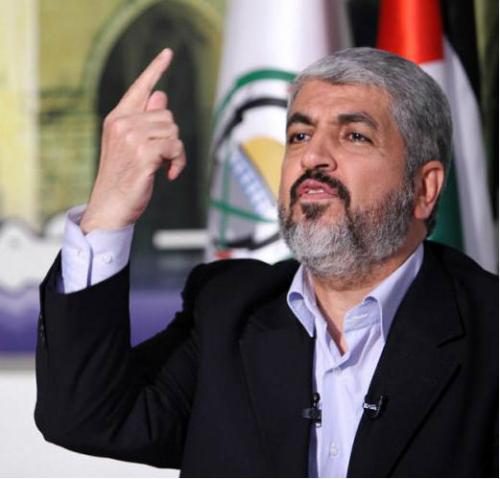|
Why didn’t Khaled Meshal thank Syria, Iran, and Hezbollah for supporting the Gaza Strip and providing direct military aid to its resistance forces? This question arose as soon as the Hamas political bureau chief ended his lengthy press conference in Cairo. Social media buzzed with criticism of Meshal, who repeatedly expressed his gratitude to Egypt, Turkey, and Qatar for standing by the people of Gaza, but neglected to mention the others. In response to a question, he was compelled to thank Iran for its support in recent years, but he made sure to affirm his differences with the country over the Syrian crisis. The criticism peaked when Hezbollah Secretary General Hassan Nasrallah broached the question last night. He seemed to have been provoked by Meshal’s failure to mention the role of at least Iran and Syria, and quoted Quranic passages to deliver perhaps more than a mere rebuke. The two countries have, after all, spent tens of millions of dollars in their Gaza efforts, making significant sacrifices to develop the fighting capability – especially the missile capability – of the resistance. This may be the first time such an issue has been publicly discussed. Its mere mention could be seen as an attempt to make the Palestinians feel obliged for assistance. Some might reply to Nasrallah: If you want us to thank Syria and Iran, that means you helped us out of your own self-interest. Others will say that Iran and Syria’s support for the resistance in Palestine is not all it’s cracked up to be, and that the political and diplomatic backing it receives is more effective than military support. The point will also be made, of course, that if Hamas was not currently at odds with Iran and Syria, it would not have been asked to show its gratitude. All these points may be valid. It is indeed not right to demand gratitude or approval for something done for a sacred cause, let alone when it is done out of religious conviction. Nasrallah tried to circumvent this by citing a Quranic passage about God being generous to the grateful. But it is also valid to ask why this discussion is taking place today. The ongoing confrontation in the Gaza Strip makes it incumbent to set differences aside and seek out areas of agreement. There is also an obligation to be frank with the Palestinian resistance’s supporters throughout the Arab world. They need to be alerted that the inevitable cease-fire must not preclude the goals of the resistance. This makes it necessary to reiterate points which may embarrass those who think they support the resistance, but do not respect the real underpinnings of its support. None of this, of course, is as important as the continued commitment to the resistance. This has been proven in Lebanon and Palestine’s wars with the enemy. Nothing matters more than the mettle of the people in the occupied areas, especially in Palestine. They could carry out their resistance even if the whole world abandons them, and the mightiest power on earth cannot force resistance on people. This leaves the matter of the resistance’s objectives, and the means of achieving those goals. There is consensus today that the Israeli assault on Gaza failed because the resistance managed to muster a missile capability that enabled it to hit the enemy in ways that hurt. It is this capability that makes continuing the war undesirable from Israel’s point of view, and even that of the West. Alongside the resistance’s political will and its fighters’ skills, it played the decisive role in foiling the Israeli aggression. This invites the question: What will the resistance forces’ next step be after the cease-fire? Will they rebuild an improved military and missile capacity capable of deterring the enemy from repeating the aggression? Or to bank this victory, will they seek a truce on grounds of rebuilding infrastructure and adopting the line of thinking that is prevalent in the region at present? As the “forces of the Arab Spring” consolidate their rule in this country or the other, Palestine is just another agenda item that must wait. Ibrahim al-Amin is editor-in-chief of Al-Akhbar. This article is an edited translation from the Arabic Edition.
Three Reader Comments added to the article by Axis of Logic: Submitted by Marion (not verified) on Thu, 2012-11-22 09:03. Submitted by free thinker (not verified) on Tue, 2012-11-20 21:34. Is it not obvious enough for you : He thanked Turkey( Nato member), Qatar( US Airbase) anf Egypt ( camp david). He also thanked Syria by having his terrorists in syria fight against the syrian army that trained them and gave them weapons and sanctuary. Is it also not obvious that Hamas is a part of the Muslim Brotherhood alliance which include Egypt Turkey Libya and Tunisia, and possibly Syria( if the regime falls). This alliance will be allied to NATO, and directed against Shias (Iran , Hizballah, Iraq). Wake up and see things as they are and as you wish them to be ! Submitted by hezbeleb (not verified) on Tue, 2012-11-20 20:35. Source: Al-Akhbar English |
